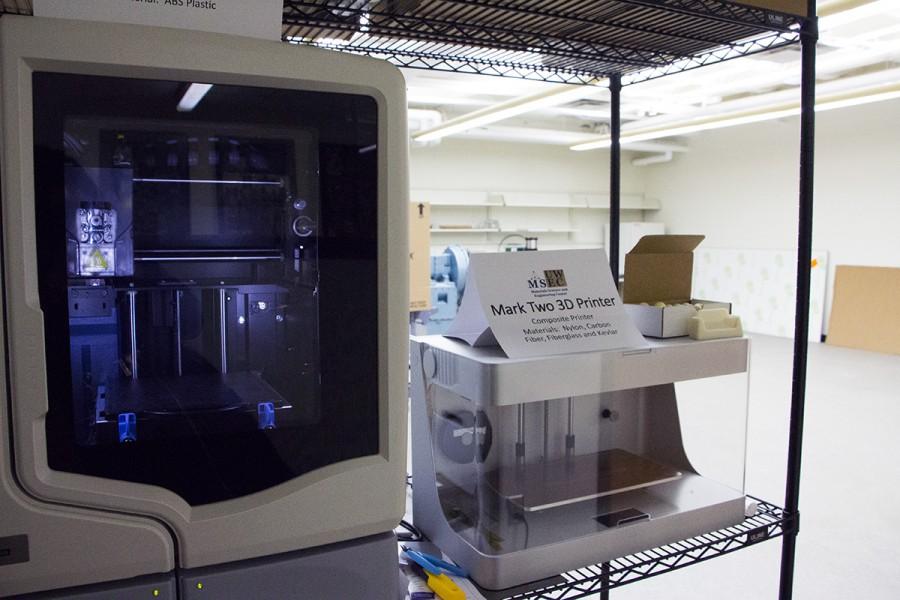A prestigious grant to the UW-Eau Claire chemistry department may open doors for research and students
Professor: three-year grant will fund research that could lead to more effective antibiotics.
More stories from Gabriel Lagarde
Photo by Kendall Ruchti
Researchers will be utilizing high-tech equipment in the Material Science labs located in the ground floor of L. E. Phillips Hall.
UW-Eau Claire received a $337,000 grant from the National Institute of Health to fund research that may lead to important scientific insights while providing valuable experience for students.
The grant, which is to be utilized over the course of three years, will fund studies and experiments regarding the functionality and dynamics of proteins. Proteins – the fundamental building blocks of all living organisms – have unique structures and movements that differentiate them from each other, Sudeep Bhattacharyay, assistant professor of chemistry and one of two principal beneficiaries of the grant, said.
Bhattacharyay said understanding these dynamics can enable scientists to create technologies that single out specific organisms from others – breakthroughs that may include hyper-accurate treatments that kill bacteria and parasites while leaving nearby tissues unharmed; a boon for antibiotic technology and the patients who need it.
The National Institute of Health selected UW-Eau Claire as result of two factors. First, the university has a long track record of supporting student research Second, its facilities, which include sophisticated labs and computer systems rarely seen outside of larger institutions with graduate programs, Bhattacharyay said.
As a result, Bhattacharyay said, the university is now able to use a large and prestigious grant, which is even more valuable considering the shortage of government funding in recent years.
Bhattacharyay and his colleague, Sachita Hati, an associate professor of chemistry, are working with a core group of six student researchers: Ryan Andrews, Clorice Reinhardt, Quinn Haukun Hu, Tiffany Huynh, Mat Mocol and Sam Becker. They will work with students in senior-level chemistry courses during the studies.
Research provides valuable experience for students that a classroom or lecture setting can’t offer, Bhattacharyay said. It cultivates skills that are vital in the scientific fields, Bhattacharyay said.
“Research by itself is characteristically different than learning in a classroom because here you’re working as a team, so you have a goal, an objective,” he said. “There’s a kind of natural peer pressure. Critical thinking, creativity; (it) all comes as a package to create meaningful results.”
Ryan Andrews, a senior chemistry student and the supervisor of the core research group, said these research opportunities give students from Eau Claire an edge in regards to employment or graduate studies.
“They always assume I’m at a big institution with a graduate program,” Andrews said. “One school (I applied to) said I had expertise, they were interested in my expertise because of the research I’ve done.”
Clorice Reinhardt, a chemistry student and one of the core researchers, said Bhattacharyay and Hati approach student research as a partnership, not as subordinates as many programs do.
“They keep us as part of the process. They keep us involved and they acknowledge our ideas and we help them,” Reinhardt said. “As much as they’re the principle investigators, they also include us as co-investigators and that makes our contribution important.”
Andrews said there is also the added satisfaction in working toward something tangible: data that can be used for future forms of antibiotics, even if the student researchers never see the full extent of what their work meant.
“It’s knowing that what you’re doing may not be profound immediately, but it’s building blocks,” Andrews said, “It’s maybe going to be used by someone else down the road.”
Bhattacharyay said research started Feb. 1, 2016 and will go until Feb. 2019.

